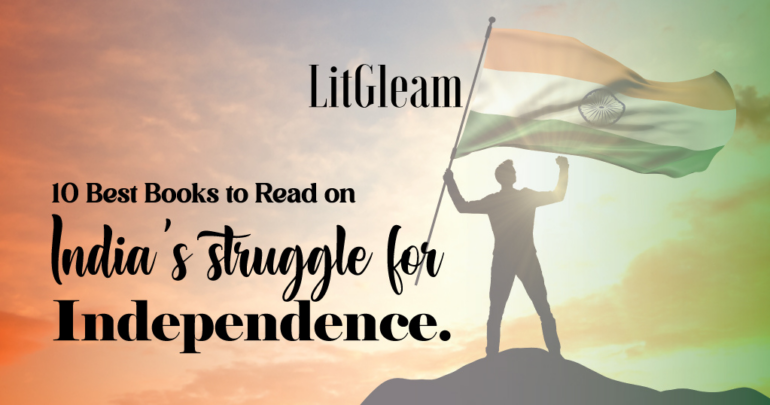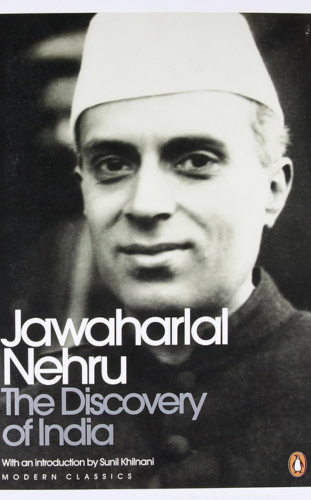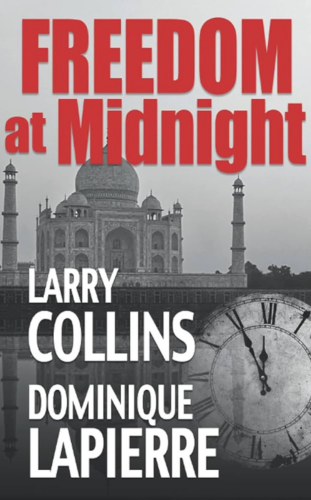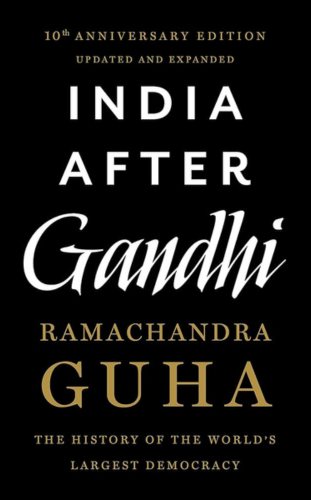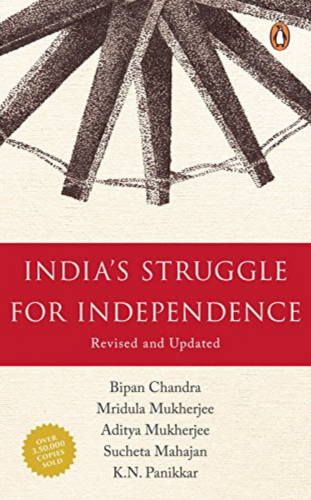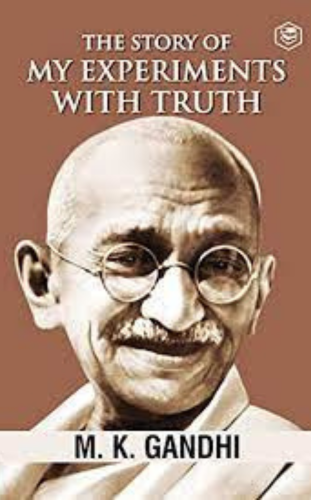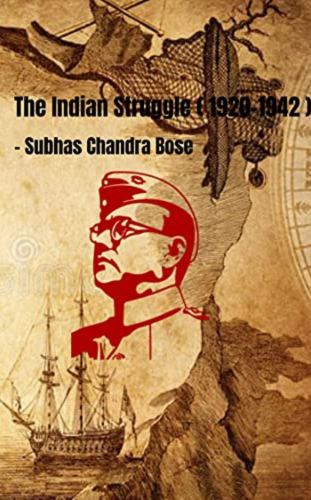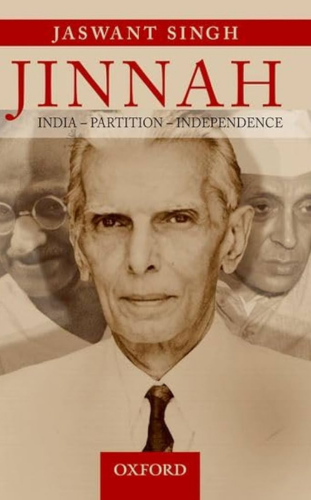Freedom, a word that liberates mind, body, soul as we hear it. But there was a time that Indians could not even visualise what freedom would feel or seem like. After almost twenty decades of being under British Raaj, the silent war for independence became loud and clear.
In 1947, the British Rule departed the Indian subcontinent, leaving two sovereign countries filled with immense emotions; there were hearts filled with content and joy of freedom, with blazing rage and bloodlust and, with grief and mourning.
This blog post is devoted to historical works and narratives of the pre-, during, and post-independence era. We recommend these insightful and heartbreaking works for you to read as they tickle the curiosity and interest buried deep down in your soul for our country. Team LitGleam has taken the best 10 books for you that will help you know the struggle of millions during fighting for independence and the grieving relief after.
- “The Discovery of India’’ by Jawaharlal Nehru
- “Freedom at Midnight’’ by Larry Collins and Dominique Lapierre
- “India After Gandhi” by Ramachandra Guha
- “India’s Struggle for Independence” by Bipan Chandra
- “The Story of My Experiments with Truth” by Mahatma Gandhi
- “In Freedom’s Shade’’ by Anis Kidwai
- “The Indian Struggle” by Subhash Chabdra Bose
- “Jinnah: India-Partition-Independence” by Jaswant Singh
- “Spectrum: A Brief History of Modern India” by Rajiv Ahir.
- “History of Modern India” by Bipan Chandra
“The Discovery of India’’ by Jawaharlal Nehru
Jawaharlal Nehru’s “The Discovery of India” is a mammoth work that offers a comprehensive overview of India’s rich history, culture, and philosophical traditions. Nehru wrote the book during his detention at Ahmednagar Fort for his involvement in the Quit India Movement (1942–1946), and it is a reflection of his in-depth musings and scholarly involvement with India’s history.
Readers travel through the history of ancient civilizations, the effects of foreign invasions, the Mughal Empire, and the British colonial era with Nehru. The book explores the social, economic, and cultural factors that influenced the subcontinent. Nehru’s writing is distinguished by a combination of critical thinking, introspection, and dedication to the advancement and unification of India. “The Discovery of India” is still a timeless masterpiece that inspires people today. ‘Bharat Ek Khoj’, a television series based on the same, was released in 1988.
“Freedom at Midnight’’ by Larry Collins and Dominique Lapierre
The last year of British control in India is vividly described in the book, as are the events that led to the country’s partition and eventual independence in 1947. The lives of important participants in the independence movement, such as Mahatma Gandhi, Jawaharlal Nehru, and Lord Mountbatten, the final Viceroy of India, are painstakingly documented by Collins and Lapierre.
The authors do a masterful job of capturing the interpersonal drama, societal discord, and political upheaval that characterised this pivotal time. The phrase “Freedom at Midnight” refers to the historical event on August 15, 1947, at exactly midnight, when India attained independence. The book is a riveting and widely read account of this crucial chapter because of its meticulous research, engaging storytelling style, and ability to humanise historical events.
"India After Gandhi" by Ramachandra Guha
This is a reliable history of India called “India After Gandhi,” published in 2007, covering the period from 1947, when it gained independence, to the early 21st century. The book explores the nation’s struggles and victories during its shift from colonial authority to a contemporary democratic state. Guha looks at a number of aspects of India’s post-independence history, such as social, political, and cultural developments as well as economic and governmental policies. In addition to highlighting the important political leaders, the book also emphasises the contributions made by the common people to the development of the country.
Thorough research, fair analysis, and a storytelling style that makes even the most difficult historical events understandable to a wide audience are the hallmarks of Guha’s narrative. “India After Gandhi” is regarded as a seminal work that offers a comprehensive comprehension of the intricacies and multiplicity of India’s experience following independence, rendering it an indispensable tool for learners, academicians, and anybody with an interest in contemporary Indian history.
"India's Struggle for Independence" by Bipan Chandra
The thorough and significant book “India’s Struggle for Independence” by Bipan Chandra gives a full description of India’s path towards freedom from British colonial authority. Since its 1987 publication, the book has established itself as an essential resource for scholars, students, and anybody else curious about the complexities of the Indian independence movement. The author provides a chronological account of the major figures, movements, and occasions that influenced the independence movement between the middle of the 1800s and 1947. The book explores socio-political, economic, and cultural facets, offering a comprehensive perspective of the difficulties that both the populace and the leaders face.
“India’s Struggle for Independence” is well-known for its thorough research and analysis, and it has received praise from many for offering a fair and perceptive viewpoint on the many stages of the liberation movement. For individuals getting ready for competitive exams, such as the Civil Services Examination given by the Union Public Service Commission (UPSC) in India, it is frequently suggested as a foundational work.
"The Story of My Experiments with Truth" by Mahatma Gandhi
Mahatma Gandhi, a pivotal participant in the Indian independence movement, wrote an autobiography titled “The Story of My Experiments with Truth.” The novel was first written in Gujarati and then translated into English. Gandhi authored his autobiography, which covered his life up until 1921, in serial fashion. In the book, Gandhi considers his life’s work, his principles, and the evolution of his nonviolent resistance theory, or satyagraha. He talks candidly about his early years, schooling, travels to South Africa, and his developing views on truth and nonviolence.
The story is marked by introspection, integrity, and a dedication to the ideals that governed Gandhi’s life. In addition to giving readers a glimpse into Gandhi’s life, “The Story of My Experiments with Truth” also helps readers comprehend the moral and spiritual underpinnings that drove the Indian independence movement. The autobiography is still regarded as a genre classic and is required reading for those interested in the background of India’s freedom movement or Gandhi’s ideas.
"In Freedom’s Shade’’ by Anis Kidwai
The autobiography “In Freedom’s Shade” was authored by Indian social activist and well-known political figure Begum Anis Kidwai. Begum Anis Kidwai made a substantial contribution to social and political causes after playing a major role in India’s independence movement. A first-hand narrative of Begum Kidwai’s life and experiences during a pivotal juncture in Indian history is presented in the book. It discusses her views on the social and political developments that occurred in India, as well as her participation in the freedom movement and her contacts with important political figures. Significantly, Begum Kidwai provides a distinct and much-disregarded viewpoint on the roles played by women in the independence movement.
“In Freedom’s Shade” is appreciated for its understanding of the difficulties people, particularly women, encounter during a pivotal period in Indian history. It is not just a historical record; it is also evidence of the tenacity and commitment of individuals who actively took part in the country’s liberation war and subsequent attempts at nation-building.
"The Indian Struggle" by Subhash Chabdra Bose
“The Indian Struggle” is an anthology of essays and speeches authored by Netaji Subhas Chandra Bose, a well-known and captivating figurehead of the Indian Nationalist Movement amidst the fight for autonomy. Netaji’s nephew, Sisir Kumar Bose, put together the book, which saw its initial release in 1935. In his book “The Indian Struggle,” Subhas Chandra Bose gives a thorough explanation of the political developments that preceded India’s struggle for independence from British domination.
Bose’s criticisms of British policy, his viewpoints on the socioeconomic problems that India faces, and his vision for a free and united India are just a few of the many subjects that are covered in this book. Netaji, also known as Subhas Chandra Bose, was renowned for his dynamic leadership style and his advocacy of a more assertive strategy in India’s fight against British imperialism. “The Indian Struggle” is still regarded as a seminal historical work that captures Bose’s ideas, tactics, and the difficulties the Indian Nationalist Movement encountered at a pivotal juncture in the early 1900s.
"The Indian Struggle" by Subhash Chabdra Bose. Books to read on Republic Day
"Jinnah: India-Partition-Independence" by Jaswant Singh
Jaswant Singh, an Indian politician and writer, wrote a biography of Muhammad Ali Jinnah titled “Jinnah: India-Partition-Independence.” Published in 2009, the book provides a thorough and insightful analysis of Jinnah’s life and contributions to the Indian independence cause, as well as the partition of India in 1947. The biography of Jaswant Singh explores Muhammad Ali Jinnah’s political career, his involvement in the All India Muslim League, and his support for the foundation of Pakistan, a distinct country for Muslims.
The book sheds light on the many variables that led to the division as well as the difficulties that leaders in South Asian history encountered at the time. “Jinnah: India-Partition-Independence” has generated discussions and controversies regarding the historical interpretation of significant events leading to the partition of India. It is noteworthy for its endeavour to give a fair and impartial view of Jinnah’s life and contributions. It is regarded as an important work that advances knowledge of the individuals and events that influenced Indian history throughout the country’s fight for independence and the split that followed.
"Spectrum: A Brief History of Modern India" by Rajiv Ahir
This book compiles, in an orderly and condensed fashion, several facets of the turbulent period (from the Europeans’ landing on Indian territory and the beginning of British administration in India to the day of India’s independence and the initial years of freedom): Many pertinent but little-known elements are also highlighted, along with other significant and noteworthy aspects and milestones that are skillfully explained.Not only has the major liberation struggle been taken into account, but several groups’ tiny but noteworthy initiatives have also been talked about.
The evolution of modern India has been impacted by political and socio-economic developments, which have been covered in separate chapters. For competitive tests, such as the Indian Civil Services Examination (UPSC), this book is frequently suggested. It offers a succinct synopsis of contemporary Indian history, spanning from the middle of the eighteenth century to the present. The book, which is arranged chronologically, highlights significant figures, movements, and events that have influenced India’s history during this time.
"History of Modern India" by Bipan Chandra
The well-read and critically acclaimed book “History of Modern India” by Bipan Chandra offers a thorough summary of India’s modern history. The book provides insights into the socio-political, economic, and cultural developments that have shaped the nation, spanning the era from the middle of the 18th century to the present. From the fall of the Mughal Empire to the present, the book covers important moments in Indian history, including the arrival of European powers, the British colonial era, the Indian independence movement, and the post-independence period. The author offers a critical evaluation of historical occurrences, looking at their causes, effects, and the roles that different people and communities played in them.
The book’s writing style makes it appropriate for a wide range of readers, including academics, students, and anybody else with an interest in modern Indian history. Bipan Chandra uses original documents and sources to enhance the story and provide readers with firsthand knowledge of the historical setting. This book is regarded as a fundamental reference for comprehending modern Indian history and is frequently suggested for students getting ready for competitive exams.
Read: Here’s a list of 8 books based on the Indian partition
The ten works that are suggested provide a wide variety of viewpoints on different facets of this revolutionary era. These works offer insightful descriptions by important individuals as well as thorough analyses by well-known historians that shed light on the socio-political, cultural, and personal aspects of the independence movement. Studying this important era of Indian history holistically is ensured by combining primary source materials, biographies, and thorough histories.
Through the in-depth accounts of crucial events, an examination of the ideologies of significant figures, every book enhances our understanding of the intricate details involved in the fight for freedom. These works provide as windows into the past, providing insight into the struggles encountered, the victories attained, and the unwavering spirit that characterised the Indian freedom movement, as we consider this crucial period in history.


